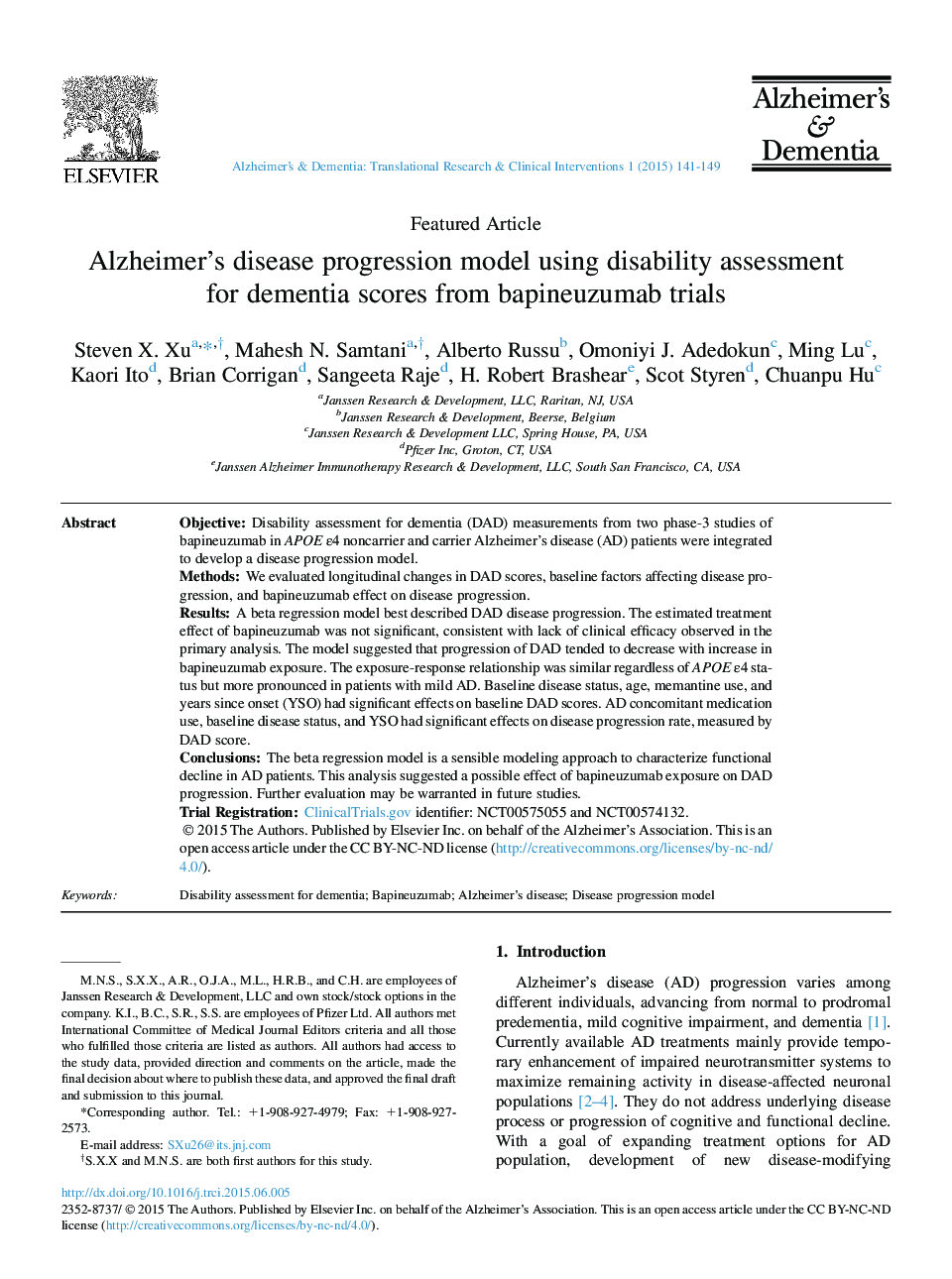| Article ID | Journal | Published Year | Pages | File Type |
|---|---|---|---|---|
| 3032084 | Alzheimer's & Dementia: Translational Research & Clinical Interventions | 2015 | 9 Pages |
ObjectiveDisability assessment for dementia (DAD) measurements from two phase-3 studies of bapineuzumab in APOE ε4 noncarrier and carrier Alzheimer's disease (AD) patients were integrated to develop a disease progression model.MethodsWe evaluated longitudinal changes in DAD scores, baseline factors affecting disease progression, and bapineuzumab effect on disease progression.ResultsA beta regression model best described DAD disease progression. The estimated treatment effect of bapineuzumab was not significant, consistent with lack of clinical efficacy observed in the primary analysis. The model suggested that progression of DAD tended to decrease with increase in bapineuzumab exposure. The exposure-response relationship was similar regardless of APOE ε4 status but more pronounced in patients with mild AD. Baseline disease status, age, memantine use, and years since onset (YSO) had significant effects on baseline DAD scores. AD concomitant medication use, baseline disease status, and YSO had significant effects on disease progression rate, measured by DAD score.ConclusionsThe beta regression model is a sensible modeling approach to characterize functional decline in AD patients. This analysis suggested a possible effect of bapineuzumab exposure on DAD progression. Further evaluation may be warranted in future studies.Trial RegistrationClinicalTrials.gov identifier: NCT00575055 and NCT00574132.
